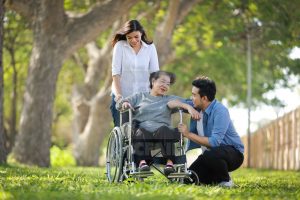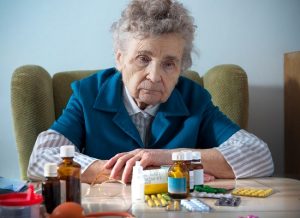Many elderly seem to be thinner as they age. This is due to many reasons such as comorbidities and poor intake. But the process has a natural reasoning called sarcopenia and is actually a normal part of aging.
Sarcopenia is described as loss of muscle mass, power, and function. The triggers are sedentary lifestyle and negative protein balance. The prevalence of sarcopenia is 33% and according to the World Health Organization (WHO), it is expected to reach 38% in 2025.
The fact is, muscle mass is reduced as much as 3-8% per decade after 30 years old while the loss of muscle mass between 40 to 80 years old is predicted to be 30-50%. The loss of muscle mass is very important because it contributes to disability and low quality of life. It can also cause fall and injury and also affects the cost of health service.
How to Prevent Muscle Mass Loss?
Although sarcopenia is a natural part of aging, considering its risks, the family and caregiver need to know how to prevent muscle mass loss or at least delays it.
1. Exercise
Physical inactivity clearly is correlated with loss of muscle mass and power. Therefore, any effort to increase physical activity should have positive impacts. However, any physical activity needs consultation with the doctor before starting. Physical activity should also be performed gradually and with caution to avoid further complications.
2. Pay Attention to Nutrition
Diet is considered very important because a low quality diet such as not enough of protein, vitamin D, antioxidants, and fatty acid (PUFA) intake has serious effects. This is common in elderly population due to lack of appetite, change in tasting and smelling ability, gastric motility problems, deterioration in cognitive function, chronic diseases, or incorrect care.
3. Choose The Right Diet
The amount of protein suggested for consumption is 0.8 gram per kg body weight per day. But, everyone has different conditions or comorbidities which needs personalized consultation from the doctor or nutritionist for correct intake suggestion. The family and caregiver need to understand this information to be able to provide the most suitable diet for optimum health.
To consult with a nutritionist, contact Kavacare Support 0811 1446 777.



